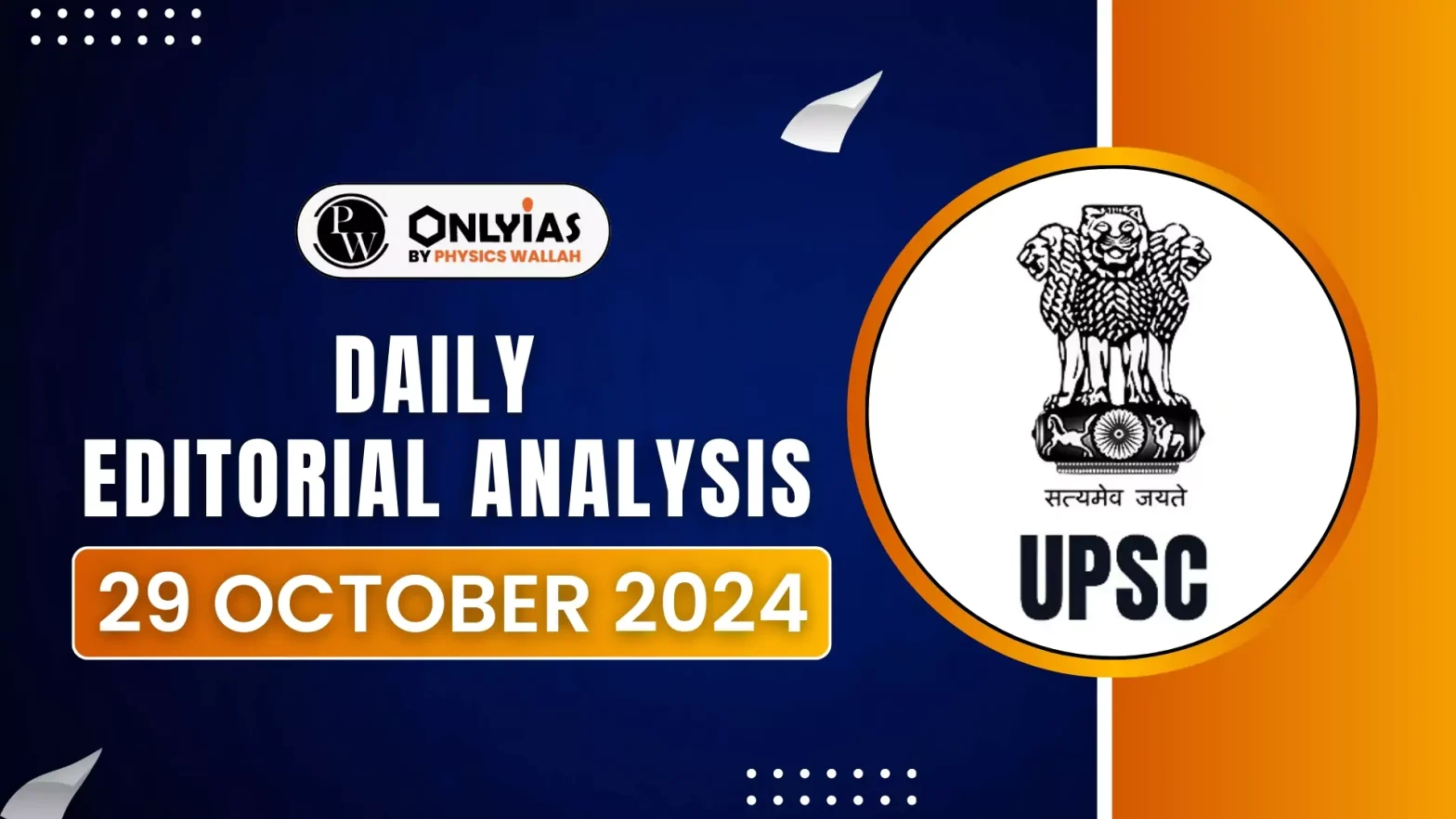In India, millions of youngsters suffer from learning difficulties, which impede their ability to learn and participate in class. Fostering an inclusive environment where all learners can succeed requires addressing these issues.
Learning Disability in Children
- Learning disabilities are complex conditions that go beyond challenges in reading and writing.
- They impact how students process, understand, and engage with the world around them.
- In India, around 8-15% of school-going children, or approximately 50 million, are reported to have some form of learning disability.
- This category includes a range of conditions like dyslexia, which affects not only reading but also comprehension and memory, and ADHD(Attention deficit hyperactivity disorder), which influences attention and impulse control.
- However, most schools in India, especially in rural areas, lack the infrastructure and trained teachers to support these students effectively.
- Although the Rights of Persons with Disabilities Act, 2016 recognizes ‘specific learning disabilities,’ the education system is primarily designed for neurotypical students, which often leaves those with learning disabilities without adequate support.
- The COVID-19 pandemic worsened the situation, as many teachers were unprepared to support students with learning disabilities online.
Enroll now for UPSC Online Course
Impact of not understanding the heaviness of Mental Disability
- Sense of Failure: Society often fails to grasp the severity of learning disabilities. Parents and teachers must understand that these students are not “lazy” or “unintelligent”; their brains simply function differently.
- Lost Potential: Without proper support, many children with learning disabilities may never unlock their true capabilities.
- Increased Anxiety and Depression: Research from the Indian Journal of Psychiatry reveals that children with learning disabilities face significantly higher rates of anxiety and depression compared to their peers.
- A Silent Struggle: Children with mental disabilities often endure mental health challenges in silence, unable to fully articulate their experiences and feelings.
The government’s recent move to introduce diagnostic tests for adult learning disabilities is a step forward. However, real progress depends on equipping teachers with the skills needed to support neurodiverse students effectively.
Solution to deal with students suffering from learning Disability
- Teacher Training: B.Ed programs should prioritise neurodiversity and adaptive teaching methods, equipping teachers to adapt to students’ unique needs.
- Innovative Teaching Approaches: Teachers can support learning differences by allowing extra time, incorporating visual aids, and providing regular breaks.
- Personalised goals, project-based assessments, and oral evaluations offer alternatives to traditional exams.
- Incentivizing Specialised Training: Providing financial incentives, career growth, and recognition for educators who train in neurodiversity can drive more teachers toward adaptive methods.
- Collaborative Efforts: Government bodies, NGOs, and private institutions must collaborate to transform NEP 2020’s inclusive vision into practical classroom strategies.
- Comprehensive Programs: India requires robust programs for early identification and intervention, using customised screening tools. Finland’s model of early support offers insights, but India’s scale demands unique solutions.
- Existing Initiatives: Programs like the 22 Cross-Disability Early Intervention Centres (CDEIC) and Kerala’s early intervention initiatives, though primarily for hearing impairments, demonstrate a path toward broader support.
- Technology Integration: Tools like text-to-speech software, AI-powered aids, and platforms like PM e-Vidya, DIKSHA, and e-Pathshala under Digital India help bridge learning gaps, though access remains a challenge.
- Parental Role: Parents are essential in recognizing early signs and advocating for their child’s needs. Empowering them with resources and guidance to navigate the support system is crucial.
- Public Awareness: A cultural shift is needed to destigmatize learning disabilities. Campaigns and films like Taare Zameen Par play a vital role in reshaping perceptions, but awareness must start at home.
Check Out UPSC CSE Books From PW Store
Conclusion
The reality of learning disabilities is complex, but our response doesn’t have to be. Society has to be more inclusive and the potential of varied young brains may be unlocked by establishing an inclusive educational system that promotes empathy, understanding, and evidence-based solutions.
![]() 29 Oct 2024
29 Oct 2024

